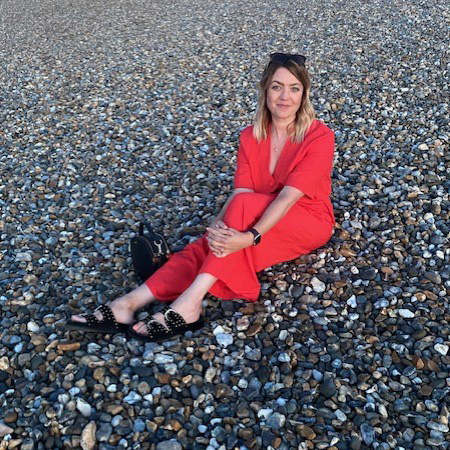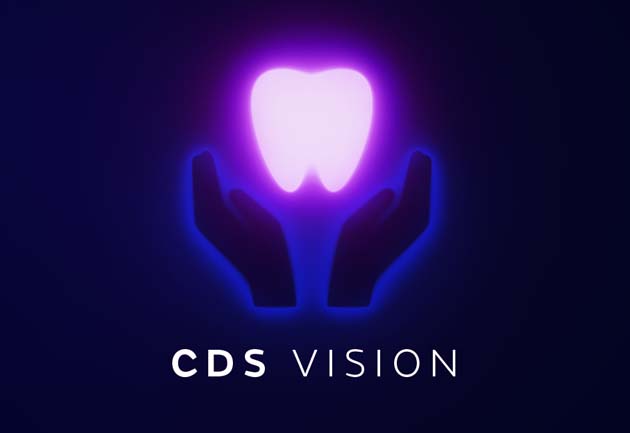We continue to highlight the worrying workforce decline within the Community Dental Services (CDS) and the need to maintain a training pipeline of new graduates into the service. We are also concerned about low uptake of Special Care training posts this year, as these specialists are vital to the effective functioning of the service. Although there are some training opportunities in certain regions, and within certain services, they need to be enhanced, promoted, made more flexible, and matched to an assessment of the workforce needed to meet patient need. We spoke to Lauren Firth regarding her experiences of what good can look like for training and career pathways within the CDS.
Exploring CDS training pathways for the new generation of dentists
Routes into and within an expanding field rich in complexity, variety and teamwork, changing the lives of the most vulnerable
I qualified in Leeds in 2008 and did my vocational training job in a practice in Sheffield. I had a few complex patients and I really enjoyed treating them. The Training Programme Director asked me whether I had heard of the CDS and suggested I speak with some colleagues of his to see if it was something I would be interested in. So I did, and that whet my appetite to explore the CDS further. In Sheffield I did a split year in max fax and Special Care Dentistry and realised this was the career for me. I got a job initially as a dental officer four days per week to gain further experience, worked in general practice one day per week and the out of hours service also. In the three years that followed I gained publications and experience in a variety of areas of the specialty.
In 2012 I applied for specialty training as a Specialty Trainee Registrar. I completed my training and passed the membership exam in late 2015 and was put on the specialist register in 2016. I then worked as a specialist in Hull and East Riding until 2018 when I was appointed as Consultant in Special Care Dentistry back in Sheffield.
In many areas and especially in the North and rural areas, Special Care Dentistry services lie within the CDS. I like the complexity of patients the speciality covers and find it to be the perfect combination of medicine and dentistry.
Current training opportunities within the CDS
There are really good opportunities for training in Yorkshire and Humber, as well as nationally within the CDS in a number of urban and rural settings. We have Dental Core Training (DCT) posts; DCT2 and DCT3 posts in some places too. These jobs can be used as a good stepping stone into Specialty Registrar training. Those wishing to pursue specialty training in Special Care Dentistry must apply through the national recruitment process.
Some CDS practices also provide in-house training for clinicians to progress through the existing pay scales and promotion opportunities. For those wishing to make the jump from the GDS into the CDS, some areas are providing tier 2 training and accreditation in both Paediatric and Special Care Dentistry. This builds links between the CDS and GDS which facilitates patient care and discharge pathways.
I think Special Care Dentistry is the specialty that needs to develop most in the future, both in terms of the population we treat and the clinical skillset we will be required to have. One huge concern is that we have an ageing population with more complex medical histories, as well as advanced restored dentitions. These will become a challenge to manage so it is crucial we develop the dental workforce to meet this future need
Overall, it is a really exciting time for Special Care Dentistry to be honest; we just need to engage the next generation and make them aware of this amazing speciality.
Encouraging more people to train as CDS dentists
If you study dentistry at the moment, there is often only a brief mention of Community or Special Care Dentistry during your undergraduate training. In order to encourage people to train as CDS dentists, Special Care Dentistry needs to be part of the curriculum and the training must be delivered by CDS dentists.
Graduates often want to go to big cities, but the areas where we need clinicians in the CDS are not always in cities. Instead, developing training opportunities within the CDS could encourage staff into rural areas or those in need of CDS services. We should give individuals the chance to work in environments they like, where they already live.
Currently we are facing a workforce crisis within the CDS, in both Special Care Dentistry and paediatrics. With Special Care Dentistry being a relatively new specialty, those initially grandfathered onto the Specialist Register have either already retired or will be doing so in the near future and we do not have the same number of new trainees coming through the system to fill the gaps. Recruitment and retention issues in some rural areas make the situation more challenging.
Advice for students thinking of training as CDS dentists
If you like feeling part of a team then the CDS is for you! There is a variety of staff grades including Dental Officers, Specialists, Consultants, Therapists, Hygienists, Extended Duty Dental Nurses, trainees in most areas and opportunities to work alongside other healthcare professionals. There is a real sense of family and belonging and that comes across in the care we deliver to our patients. You will never feel like you are not doing a rewarding job, because what we do improves the quality of our patients lives.
It is a field of dentistry where you treat patients holistically; they are much more than just teeth! Often these groups of the population are treated worse than others in our society sadly due to the barriers and discrimination they often face in day-to-day life. Their oral health is deemed less of a concern although we know that oral health is integrally linked with overall health and wellbeing. We use our mouths to eat, speak, talk or even kiss. If the mouth is painful or does not look nice, it has a huge impact on an individual's life.
No two days are the same in the CDS and there are interesting niche areas to develop. We break down barriers to allow vulnerable people to access the care they need. There are purpose built clinics with hoists and other mobility aids, and we utilise an armamentarium of skills and treatment modalities to facilitate care. We visit patients in a variety of different settings; from their own homes, to care homes, hospital wards, mobile units, dedicated surgeries in schools or other buildings and secure units.
Homeless patients get a new smile that gives them the confidence to go for a job. Patients with learning disabilities are not in pain any more. Patients with mental health conditions do not feel judged and instead feel listened to. Oncology patients receive timely and efficient care so their chemotherapy is not interfered with and treatment outcomes are not affected.
I go home on an evening and I think... I do make a difference. What more could you want from a career?


